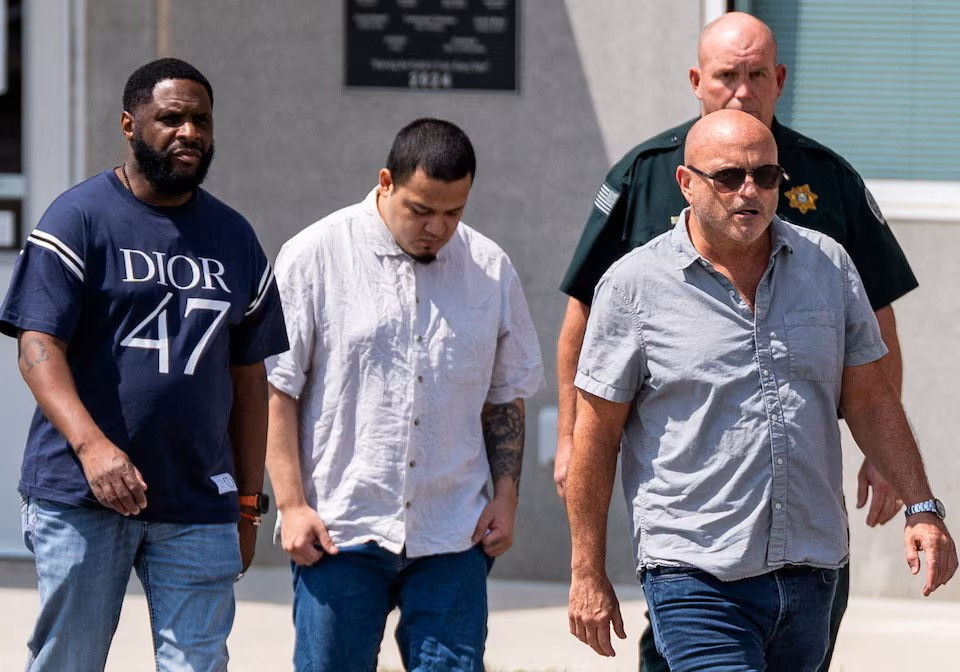Kilmar Abrego García: A Case of Injustice and the Threat of Deportation to Uganda
- Teo Drinkovic
- Aug 25
- 3 min read
The Ongoing Struggle and New Threats of Deportation of a Salvadoran Immigrant, Kilmar Abrego García, Amidst U.S. Immigration Policies

Introduction
Do you recall the infamous case of Kilmar Abrego García, the 30-year-old immigrant from El Salvador who was wrongfully deported and later returned to the United States?
Unfortunately, Abrego García has once again found himself at the center of controversy, now facing the possibility of deportation, not to El Salvador, but to Uganda or Costa Rica, under a new U.S. law allowing deportations to third countries.
His initial deportation in March 2025 sparked international outrage due to a mistake by U.S. authorities. Now, after rejecting a plea deal that would have allowed him to remain in the U.S., Abrego García faces renewed threats of deportation. Maryland Matters
Background and First Deportation
Abrego García emigrated from El Salvador to the United States at the age of 16, fleeing threats from local gangs that had harassed his family.
Upon arriving in Maryland, he settled peacefully with his wife, Jennifer Vasquez Sura, and their children. Although an undocumented immigrant, he had no history of serious criminal offenses.
In March 2025, however, he was erroneously deported to El Salvador, despite a prior court ruling granting him protection due to credible threats from gangs. After his deportation, he was imprisoned in El Salvador’s CECOT prison, known for its harsh conditions and alleged prisoner mistreatment.
His family initiated legal action, leading the U.S. Supreme Court to order his return to the United States.
Current Threat and Potential Deportation
Upon his return to the U.S., Abrego García faced charges related to human smuggling, stemming from a 2022 traffic stop in Tennessee. Both he and his attorneys deny these allegations, asserting that the charges are retaliatory actions for challenging his previous deportation. AP News
The U.S. government offered him a plea deal: plead guilty to the charges and be deported to Costa Rica, where he could live freely. Abrego García rejected this offer, maintaining his innocence. In response, authorities threatened to deport him to Uganda, a country with which he has no ties and where he would be a complete stranger. Tennessee Lookout
This threat has raised significant concerns among Abrego García and his attorneys regarding potential human rights violations and safety issues, given Uganda's history of human rights abuses, including torture and mistreatment of prisoners. Although he was released from custody in August 2025, he remains under the threat of re-arrest and deportation.

Legal and Political Context
Abrego García and his legal team argue that the entire legal process against him is politically motivated and serves as a means to intimidate other immigrants. They contend that the threats of deportation to Uganda are attempts to coerce him into a guilty plea, violating his right to a fair trial.
Furthermore, they highlight that his initial wrongful deportation was due to an administrative error, not genuine threats to his safety.
His case has become emblematic of broader issues within the U.S. immigration system, which is frequently criticized for human rights violations and a lack of transparency. Human rights organizations and immigrant advocacy groups are calling for a thorough review of his case and a halt to any deportation attempts until a fair trial can be ensured.
Conclusion
The situation in the United States regarding immigration is highly complex, further complicated by new immigration laws and ongoing demands for deportations.
Kilmar Abrego García's case underscores serious flaws in the U.S. immigration system, including wrongful deportations, threats of violence, and politically motivated charges.
His fight for justice is not only personal but also collective, reflecting the broader struggle for human rights and fairness in society.
As his case continues to unfold, the critical question remains: will U.S. authorities correct their mistakes and ensure a fair trial for all immigrants, regardless of their status or origin, or will the situation deteriorate further?






Trump is to blame for everything
Shame on you Americe
Feel free to comment!